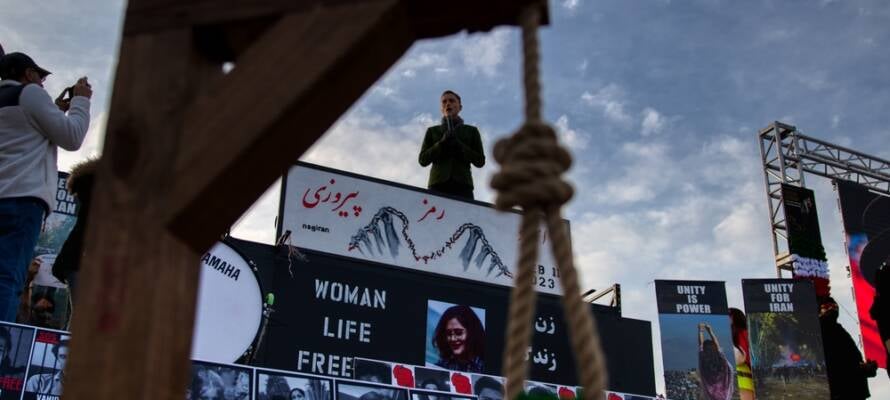The execution sparked outrage and protests across Kurdistan.
By Ben Cohen, Algemeiner
Iran on Monday executed four Kurdish political prisoners accused by the Islamist regime of planning a bombing attack in the central city of Isfahan that was supposedly orchestrated by Israel’s Mossad intelligence agency.
The four men — Mohsen Mazloum, Mohammad Faramarzi, Vafa Azarbar, and Pejman Fatehi — were charged by the Iranian authorities with having illegally entered Iran from Iraqi Kurdistan, for the purpose of bombing a factory in Isfahan that produces equipment for the Ministry of Defense and Armed Forces Logistics.
“The death sentence of four members of a group affiliated with the Zionist spy organization … was carried out this morning,” the Iranian judiciary’s website Mizan Online reported.
The four Kurds were all members of the left-wing Komala Party, one of several Kurdish organizations banned by the Iranian regime, according to the Kurdish news website Rudaw.
The US government condemned the executions in a statement on Tuesday, excoriating Iran’s “blatant disregard for human rights” and emphasizing that it had received reports of “torture and unfair trials.”
News that the Iranian authorities were refusing to hand the bodies of the executed prisoners to their families sparked an angry reaction across Kurdistan.
General strikes were held in protest of the executions at bazaars in the cities of Mahabad, Dehgolan, Marivan, Divandarreh, Kermanshah, Bukan, Saqqez, Sanandaj and Sarvabad, according to photos and videos published on Kurdish social media in Iran. Videos also depicted large numbers of people visiting the houses of the executed prisoners’ families in Bukan, Dehgolan, Kamyaran, and Mahabad to pay their respects and express solidarity with them, Rudaw reported.
According to the Kurdish Hengaw Organziation for Human Rights, internet and telephone services have been disrupted in many of Iran’s Kurdish cities, and helicopters of the Islamic Revolutionary Guard Corps (IRGC) are patrolling the sky in several cities as well. A large number of security forces have been deployed to the areas where the strikes are being held.
In December, Hengaw reported that Iranian prisons had executed 144 Kurdish prisoners in 2023, a significant rise on the previous year, when Iran executed 52 Kurdish prisoners.
Many of those who are executed in Iran — which executes more prisoners annually than any other country bar China — are convicted based on confessions often obtained under duress, Hengaw stressed.
